
View this post in it's original form on Jare.cloud!
Since 2016 I’ve been planting a seed in common colloquial: I mention koalas, pandas, dolphins (or dolfins, dolfinians) or any other number of cute and cuddly animals — even mentioning ‘thundercat’ more than a few times.
Since then, on my Facebook I have some conversations with 172, 188 results for ‘Koala,’ with instances in 98 conversations total. The most affected of the users in the experiment have been affectionately nicknamed after koalas, or another animal.
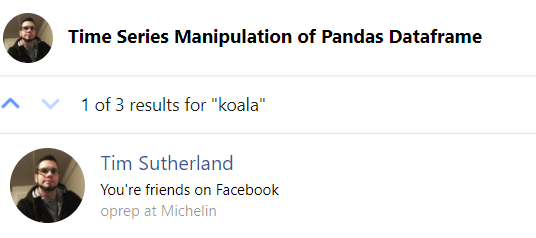
Notice it’s a play on Tim, my geekiness he doesn’t quite ‘get’ and also Pandas
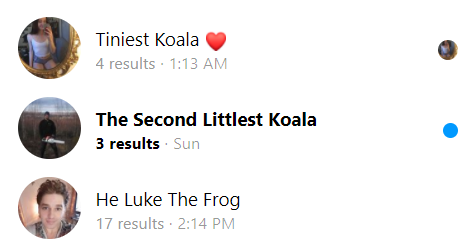
A theme?
Looking for a more general guide on achieving goals and surviving the existential crisis of day-to-day life? Read this article on the only two pieces of advice you’d need!
The intended effect was to see if I could imprint and have an effect on people’s language through nonsensical verbiage. I pressured myself into this exercise as I saw the backlash — and violence — surrounding the LGBTQ+ community’s desire to have some people referred to by their invented pronouns. The issue with people wanting to be called by ‘zhim’ or ‘zher’ in the larger sense is that it encroaches on free speech — forcing people to use words that aren’t in their vernacular because it’s personal preference is a bone of contention for many, causing actual riots and abuse of all kinds. This has seen both sides of the debate in arms and hurting people.
Note that I’m not implying support or detraction from either side of the argument. I understand wholeheartedly people going through the struggle of re-identifying themselves according to what makes them happier or more whole: having even housed and supported a friend of mine going through a transformation and a divorce, once. I also completely understand that no one person institution or government should influence the way I talk, the way I frame my thoughts or the way I express them. It’s a #dangerzone topic.
If people can cause all sorts of mayhem by insisting they influence people’s linguistics, could I have a seemingly better approach? Could I influence language by inception and ‘planting the seed’ — even if it’s for far less of a consequence or goal? Could I create a new trend, even if it’s among a select few individuals?
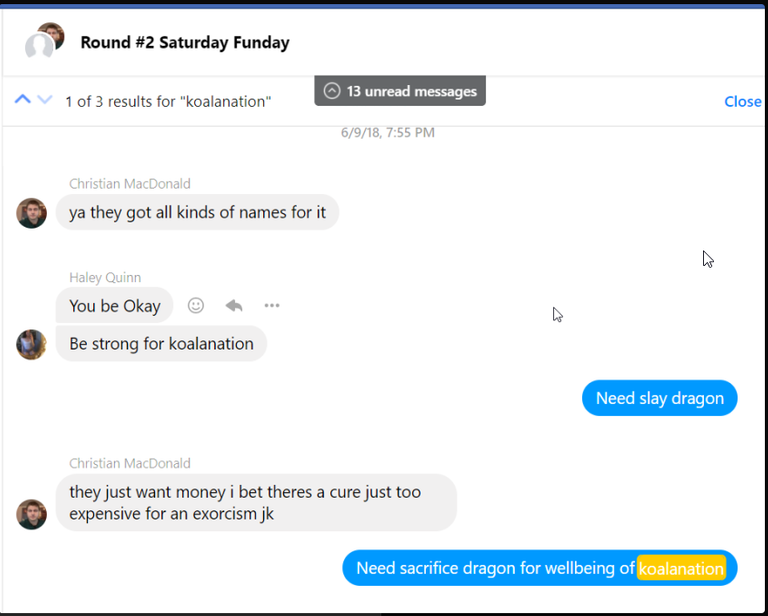
Case in point aka. QED, #1
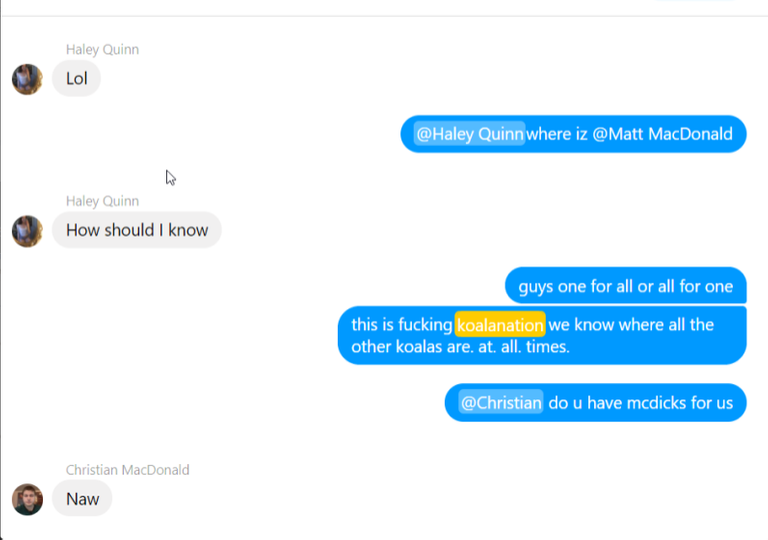
Planting the seed aka. Inception, #1
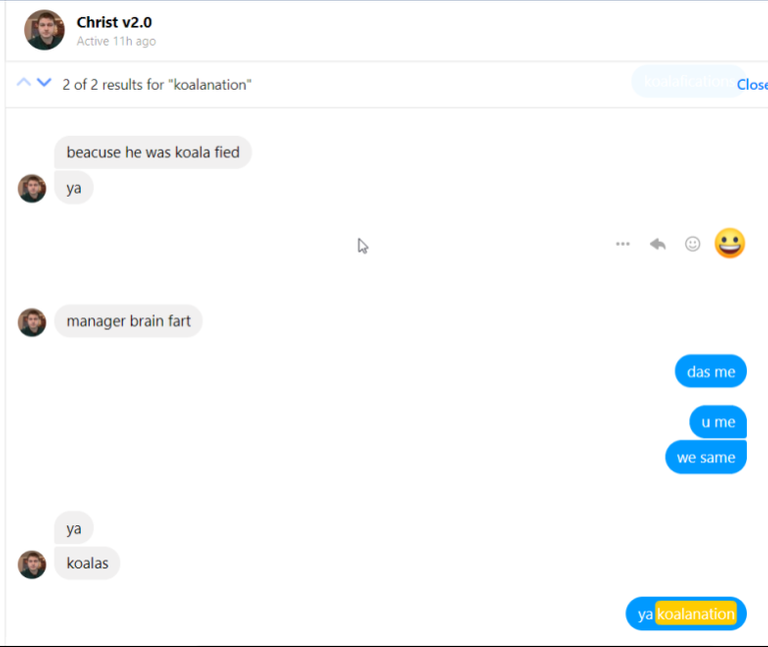
Case in point, aka. QED #2
QED: Quod Erat Demonstrandum
Literally ‘what was to be shown,’ mathematicians and philosophers write QED as they prove a thesis or hypothesis. As such, I think that after 4 years of this experiment I can wholly say I’ve proved what was to be shown. I draw your attention back to the original photo in this article: a friend of mine, of her own will, decided to draw up a Venn Diagram comparing #KoalaNation to the Manson House.
Other implications aside, it’s a clear and concise victory over the thought and speech patterns of her and countless dozens — nearly 100 — other people. She’s identified in her own mind an association between random nonsensical speech she’s heard over and over again, and applied it to greater allegories in her mind. This trend shows itself again and again with the people who’ve been introduced to this inception — growing into a real, live, breathing metaphor for who we are and what we represent.
What does this mean for transgender pronouns? Probably not too much — but I think that anyone looking to influence people and affect minds can take a page out of this book. Simply drop the thought into someone’s mind, plant that seed and effect that inception — if you’re subliminal about it, and without a clear and concise selfish outcome — you’ll change the way people behave.
Interested in other methods (supported by the mind of a maniac) for influencing people and winning friends — and how we can apply Maslow’s Hierarchy of Needs to those goals? Read this other article I wrote!
Want to learn about new articles in tech and being a madman? Subscribe to my mailing list here: http://eepurl.com/gIykNL